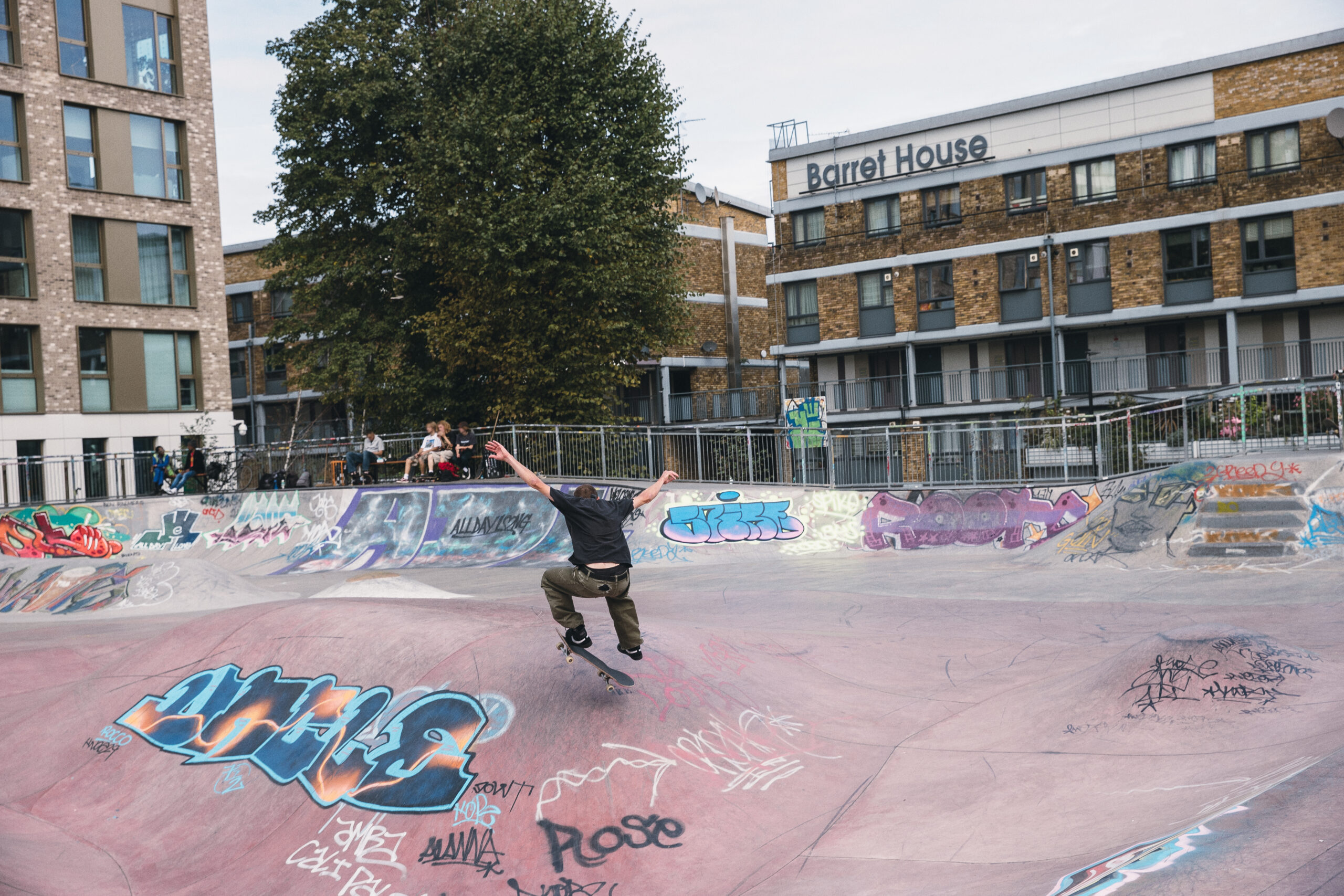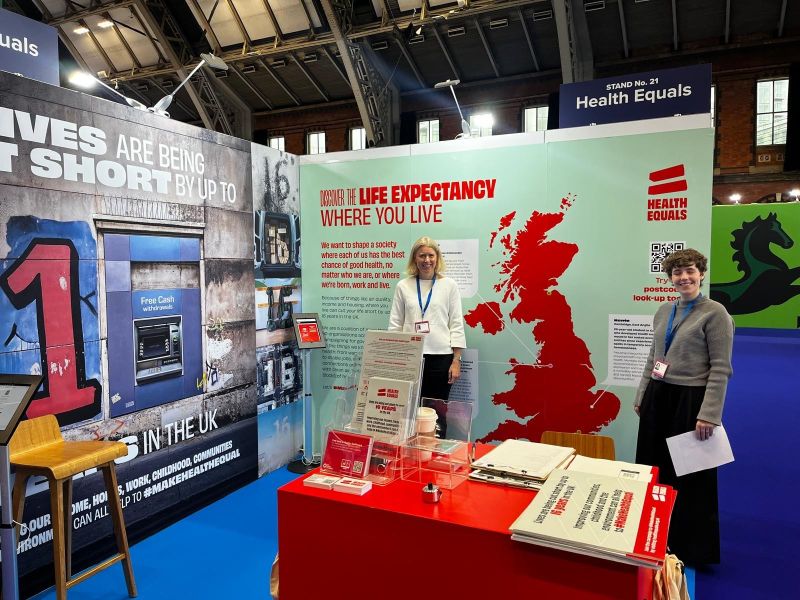New campaign to shift conversation on health
- The Confederation of British Industry (CBI), Mind and The Wildlife Trusts are part of the broad coalition to bring focus on to the building blocks of health, campaign to reduce health inequalities and improve health by promoting these in policy.
- Health inequalities in the UK are stark, and since 2010 have been steadily increasing resulting in a life expectancy gap today of up to 13.7 years.
- The building blocks for good health are largely in government control – good jobs and housing, the quality of our education, and the communities we live in. Yet, the British Social Attitudes Survey (2017) showed that most people (61%) thought individuals have a greater responsibility for their own health than the government. This compares to 9% who said the government has a greater responsibility than individuals. Improving people’s health rests on improving people’s understanding of where responsibility lies.
A new campaign backed by more than 30 national organisations committed to building a healthier – more equal – nation has launched. It includes many ‘unusual suspects’ – organisations not traditionally associated with health, but who recognise that the work they do is fundamentally linked to people’s health and it therefore makes sense to develop a shared voice.
The building blocks of health are those factors that determine our health and wellbeing such as access to affordable and quality housing, a decent income, good education, and access to green spaces.
According to data from the Office for National Statistics (ONS) and the National Records of Scotland (NRS) people living in the most deprived areas of the UK will die between eight and 13.7 years earlier than those living in the most affluent areas.
Inequalities in the building blocks of health also lead to a worse quality of life. One in five people in England say they’ve been made physically sick or experienced mental health problems due to housing issues such as damp and fear of eviction, according to Health Equals member Shelter.
Head of Health Equals, Carrie Hume, said:
Over the past decade the gap in life expectancy has been increasing, meaning that people living in the poorest areas of the UK are dying much sooner than those living in the most affluent areas. These differences are unfair and shouldn’t be a result of where or how you happen to live. We need sound preventative action that takes pressure off the health service, making sure people aren’t driven to poor health by their surroundings, living conditions, or place of work. A nation in robust health, drawing on everything we know about what supports health and wellbeing and supporting those most in need, helps secure a healthier future for everyone.
The new campaigning initiative is made possible by the Health Foundation, who are also a member of Health Equals.
Jennifer Dixon, the Health Foundation CEO, said:
The health stock of the population is lower than it could be. This reduces our current and future prosperity, and lowers our resilience to health shocks like COVID. It is time to wake up and act on the wider factors that are diminishing our health. The Health Foundation is pleased to support Health Equals in this task.
National organisations from different sectors have come together to support the initiative and demonstrate how different factors contribute to the public’s health.
Joseph Rowntree Foundation, a national organisation working to solve poverty, is one of the members of Health Equals. Frank Soodeen, Director of Communications and Public Engagement, said:
This initiative is a much-needed step towards tackling the huge inequalities in the UK. We know that people on the lowest incomes are dying years earlier than those on higher incomes. This is simply unacceptable and those with the power to make change should be doing everything to ensure that everyone can access the building blocks of health. We have the evidence. Now is the time to act.
The Confederation of British Industry joined the initiative to raise awareness of the role of businesses, as well as national decision makers, in creating change. Health Director Jordan Cummins said:
The building blocks of health are about making sure we can go to a good job with fair pay, and that we have a quality home to return to in an area with good air quality. If you lose just one of these factors it can cause health issues and for those facing multiple levels of disadvantage a shorter life span. Everyone has a role to play in making sure we can all access these building blocks including employers, politicians, and the public.
The full Health Equals membership includes: British Red Cross, Centre for Mental Health, Children’s Society, Citizens Advice, Confederation of British Industry, Crisis, Fairness Foundation, Food Foundation, Global Action Plan, Impact on Urban Health, Institute for Public Policy Research, Institute for Employment Studies, Institute of Health Equity, Joseph Rowntree Foundation, Learning and Work Institute, Legal & General, Lloyds Bank Foundation, Local Government Association, Mind, New Philanthropy Capital, People’s Health Trust, Race Equality Foundation, Royal College of Paediatrics and Child Health, Royal National Institute of Blind People, Royal Society for Public Health, ShareAction, Shelter, The Health Foundation, The Wildlife Trusts, Trades Union Congress, What Works Centre for Wellbeing.
Media enquiries
For media enquiries about Health Equals please contact Holly Beattie – [email protected]
Notes to editors
Health Equals is a 5-year-initiative funded by the Health Foundation. We are supported by a diverse coalition of organisations working in areas ranging from housing and employment to the environment, education, and business.
We are often told that our health is down to our individual choices, our genes. Well research has shown that’s only part of the story. Our health is also shaped by the world around us: from quality homes that are warm and safe, to neighbourhoods with green space and clean air.
But these essential building blocks of good health aren’t available to everyone. Right now, in too many parts of the UK, pollution and poor-living conditions are cutting lives short. We’re campaigning to change that.
We’re committed to shaping a society that values everyone’s health, where each of us has our best chance of a healthy life. For that everyone should have access to the basic building blocks of good health: a warm home, a good job, and neighbourhoods with clean air and green space.



